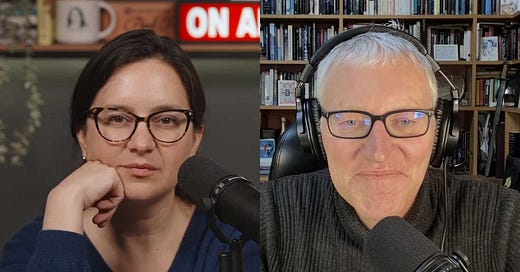
Whether you believe in the story of the virgin birth and resurrection, or you believe that those miracles are myths, one thing is beyond dispute: The story of Jesus and the message of Christianity is among the stickiest ideas the world has ever seen.
Within four centuries of Jesus’s death, Christianity had become the official religion of the Roman Empire…




How sad not to have actually spoken with a Christian theologian about the history of Christianity - as if a secular historian would know the Bible and the history of Christian thought, practice and influence better than a seminary professor would. I was excited to listen to the podcast and became more and more disillusioned as I listened since there were so many obvious misunderstandings on Holland's part. Perhaps Bari could invite a Theologian from Westminster Seminary or Reformation Bible College for example to clear up many misconceptions Holland put forth.
Read Jonathan Cahn’s book The Dragon’s Prophecy! He details Old Testament prophecies that are being fulfilled in this day and age.